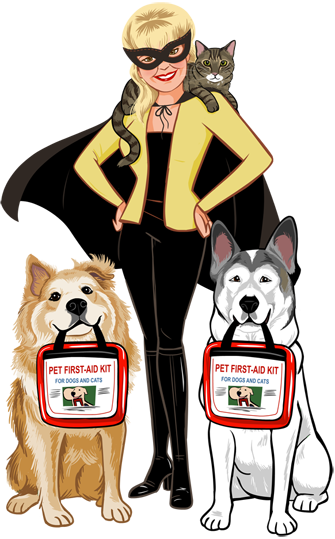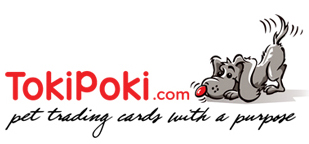
Animal care professionals find one of the most fulfilling career choices if they hold a deep passion for pets and their welfare. The pet industry expands with numerous opportunities through grooming and training along with veterinary support. The animal care sector requires diverse skills in addition to animal affection to reach success. Skilled animal care professionals must achieve both technical expertise alongside interpersonal abilities and emotional intelligence development to reach their professional targets. A successful career in animal grooming businesses or veterinary teamwork starts with developing the necessary skills.
Industry-Specific Knowledge and Certification
Entering the pet industry requires a fundamental knowledge base in technical aspects. Direct animal care positions require a thorough knowledge of animal anatomy and behavior as well as animal health problems. Specialized training helps dog groomers, trainers, and veterinary assistants maintain safety while achieving effective results. Aspiring animal industry professionals join animal career training programs to learn through classroom teaching and direct animal work experience. Enrollment in these training programs enables individuals to pursue careers as certified dog trainers, veterinary assistants, and skilled groomers. When people finish this training program, they attain professional credibility and fulfill essential industry standards required by both employers and clients.
Communication and Client Interaction
Success in the pet industry demands effective communication skills with customers who care for animals. Comparable success in the pet industry demands effective communication abilities to describe grooming methods alongside assisting owners in involving their dogs in behavior growth. Active listening to concerns and patient responses, along with straightforward translations of technical terms, plays a crucial role. Working at grooming salons and training centers involves serving as an intermediary that connects pet owners with the needs of their animals. Approachable behavior and empathy create a trust that makes pet owners comfortable entrusting their animals to your supervision. Effective client interaction leads to higher service quality while increasing both client retention and referrals.
Patience and Emotional Resilience
Animal training, especially with fearful or aggressive creatures, demands extraordinary patience. The process of helping a reactive dog adapt to a new home alongside calming a nervous puppy requires extended periods of patient effort. The capacity for emotional resilience helps you maintain calm during tough situations and protects your personal feelings from being affected by setbacks. Effective animal rehabilitation and training require the understanding that development comes from numerous incremental advancements. Maintaining a stable and peaceful manner eases animals and gives their owners confidence. You must effectively handle stress and stay optimistic to sustain your career performance over time.
Physical Stamina and Dexterity
Caring for animals is physically demanding work. Dog groomers handle pets of different sizes while standing for extended periods as they lift animals onto grooming tables or operate grooming equipment. Dog trainers and handlers need to stay in command during group classes, which take place outside in various weather situations. Veterinary assistants spend most of their workday moving between exam rooms and treatment areas on foot. Fur trimming, along with medication administration tasks, requires both good hand-eye coordination and hand dexterity skills. People gain the ability to succeed at everyday tasks through physical stamina, which simultaneously reduces their chance of mishaps and decreases fatigue.
Problem-Solving and Adaptability
Working with animals requires professionals to develop fast reactions and a strong ability to solve problems due to unpredictable animal behaviors. Your ability to adapt helps you manage unpredictable events, which include dogs disregarding training commands or distressed cats during grooming procedures through-composed and appropriate actions. Pet professionals need adaptability when they face unexpected schedule changes or medical emergencies alongside demanding clients. Creative problem-solving enables you to develop solutions that maintain safety standards and care quality. In this field, daily routines change constantly, which makes the ability to pivot essential for staying ahead.
Customer Service and Business Savvy
Most positions in the pet industry require managing a business or interacting with customers directly. Basic business operations knowledge, including scheduling, billing, and marketing, represents a significant advantage. Excellent customer service abilities help retain clients while driving them to recommend your services to others. Professionally handling complaints, responding to feedback, and managing client expectations will distinguish you from others. Those who intend to establish grooming salons, training facilities, and mobile pet services must prioritize business knowledge. Long-term success in competitive markets stems from blending animal expertise and customer focus.
Teamwork and Collaboration
Pet professionals normally work alone with animals, yet teamwork remains essential to their occupation. Veterinary clinics succeed in giving proper veterinary care through strong teamwork links between assistants, technicians, and veterinarians. Grooming facilities need staff teams to collaborate in keeping areas clean and organized while providing superior customer service. Professional trainers work with veterinarians and behaviorists when helping clients address complex behavioral issues. When team members show dependability while practicing courteous communication with their colleagues, the team’s processes operate efficiently. Effective communication during shared responsibilities among members drives team success.
Lifelong Learning and Professional Development
New discoveries and emerging technologies and techniques remain a constant force within the modern, evolving field of the pet care industry. People who focus on lifelong learning can preserve their professional advantage through consistent updates regarding their knowledge base together with skill development. To build their expertise, veterinary professionals should join workshops, acquire certificates, and subscribe to both veterinary publications and grooming periodicals. More education allows you to build a strong professional reputation since it enables you to offer complex grooming solutions for your clientele. Pet owners’ growing knowledge requires professionals to maintain awareness of the latest trends and best practices to remain effective. Professional learners who continually develop their skills can maintain their career advantages across their entire working period.

The pet industry provides unparalleled emotional satisfaction while offering diverse employment experiences and paths for professional advancement. Pet industry professionals must possess technical skills and communication abilities while understanding business concepts. To master these skills, people must commit long-term effort, but they gain rewarding jobs that bring happiness to both people and pets. Pet care professionals fulfill important roles through grooming activities as well as training services and medical assistance. Developing core skills enables you to perform better at your job while making valuable contributions to pet and family well-being.










